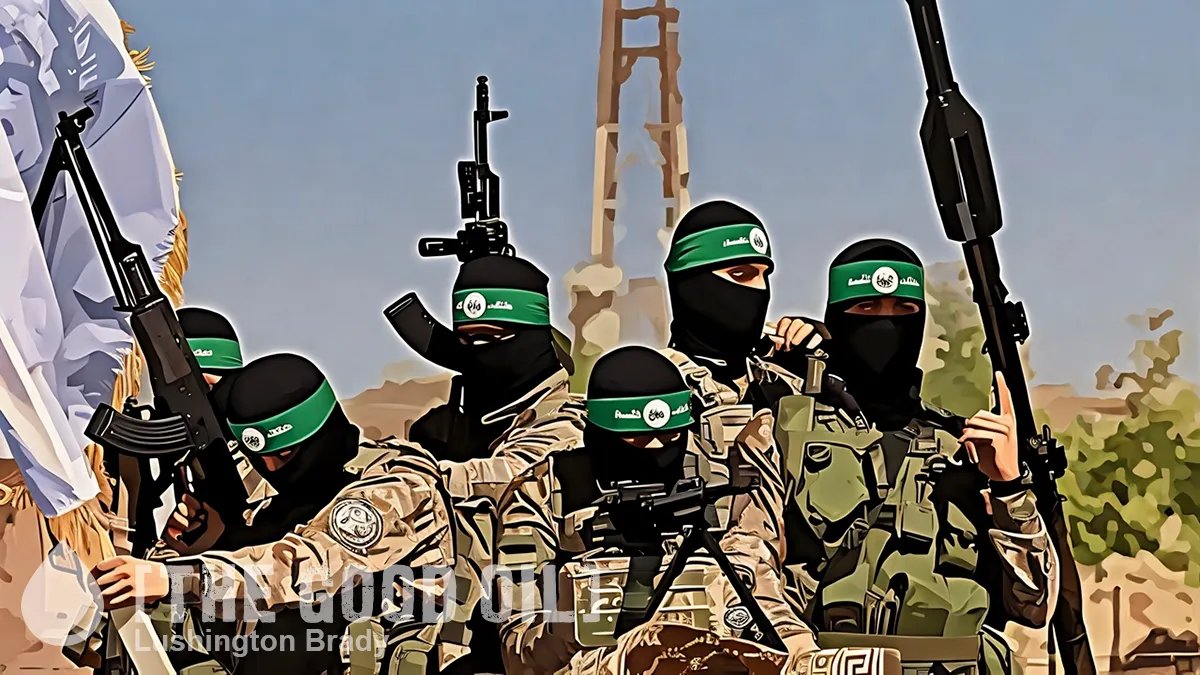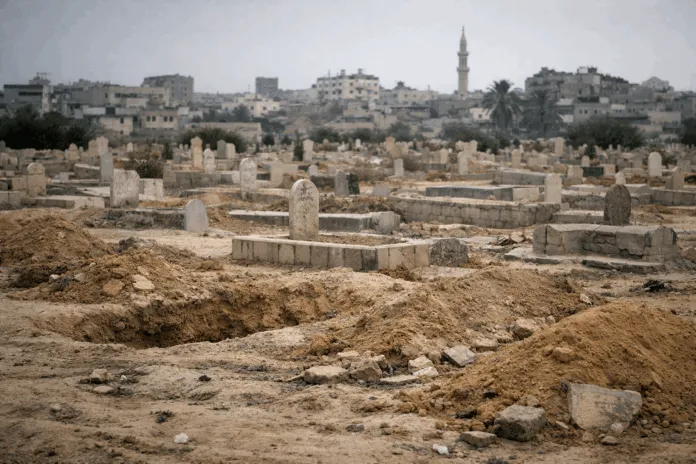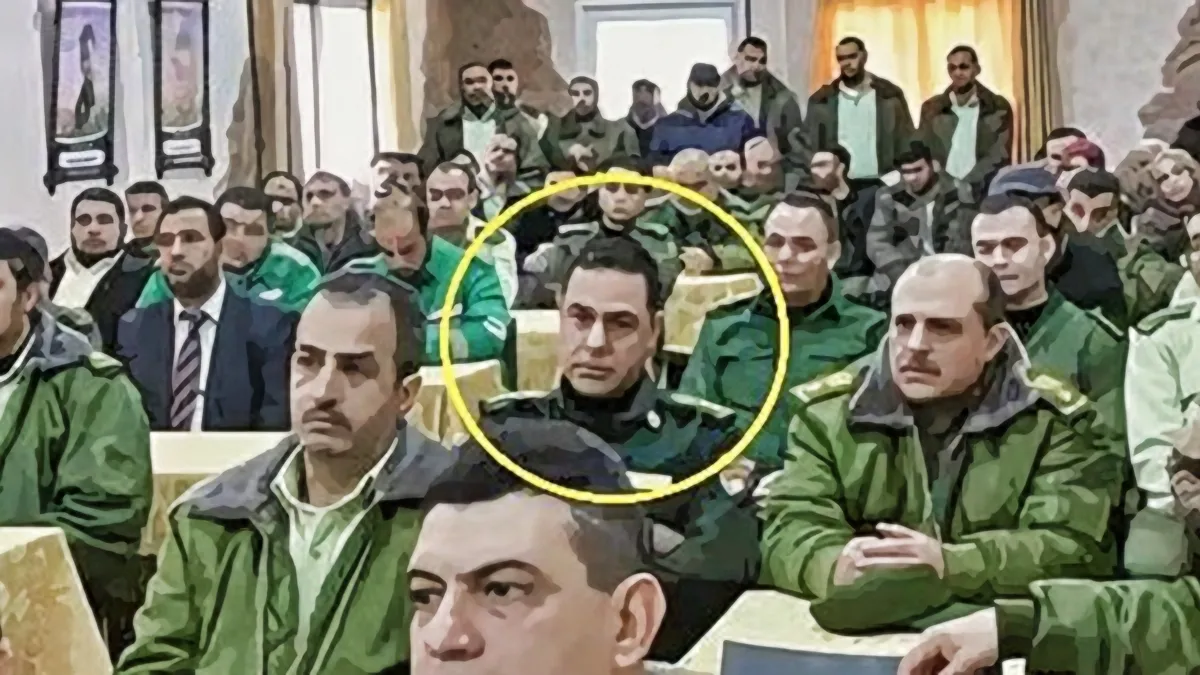Table of Contents
BICOM
BICOM provides accurate, timely and balanced information that is read by officials, experts, journalists and many others.
What’s happened: Following the success of initial talks with US, Egyptian, and Qatari mediators in Paris, an Israeli team has been dispatched to Qatar to continue negotiations which could lead to the release of hostages held in the Gaza Strip and a temporary ceasefire between Israel and Hamas.
- Senior Israeli officials have expressed cautious optimism that a deal can be reached. One said “at the end of the day, we don’t know what is happening inside Sinwar’s head. It will take a lot of time until the deal ripens, but the direction is good.”
- Prime Minister Netanyahu said “We’re all working on it… I can’t tell you if we’ll have it. But if Hamas goes down from its delusional claims… then we’ll have the progress that we all want… it’s too soon to say if they’ve abandoned [their ‘delusional’ demands].”
- In Paris, Israel, US, and Arab mediators agreed an outline for a potential hostage deal which is now subject to Hamas’s approval.
- If successful, this deal would likely allow for a six week ceasefire, the release of 40 hostages including women, children, female soldiers, the elderly and unwell.
- It would also see Israel release hundreds of Palestinians convicted for terrorist offences currently held in Israeli prisons.
- Hamas is understood to have somewhat softened its previous positions, and has indicated that it is open to the prospect of a temporary ceasefire and redeployment of the IDF within the Gaza Strip rather than a permanent cessation of hostilities and immediate withdrawal.
- However, some of its demands will likely be more difficult for Israel to accept. These include allowing internally displaced Gazans to return home (especially in the north of the Gaza Strip), and the number of Palestinian prisoners released in exchange for Israeli hostages.
- According to Israeli media, Prime Minister Netanyahu is also understood to be demanding that “high-level Palestinian security prisoners” released in a potential deal do not return to the Palestinian Territories but are instead deported to Qatar. Doha’s position on this proposal is unclear.
- There are also reports that Israel is not prepared to advance on the parameters of a deal until it first receives a list specifying which of the 130 hostages held in Gaza since October are still alive.
Context: Although signs of progress are encouraging, a hostage deal remains a distance away.
- Israeli negotiators have been granted a limited mandate while in Doha, and it is understood that these rounds of talks will focus on the technical aspects of a potential deal. In the event of their success, it is likely that their primarily role will be to pave the way for more substantial talks with Hamas.
- Israeli Finance Minister Smotrich has opposed this proposed deal, branding it as “delusional”, and indicating that he would vote against it as its terms are too favourable for Hamas.
- The demand that released high-security Palestinian prisoners be exiled to Qatar rather than return to the Palestinian Territories is also a potential stumbling block in negotiations.
- The IDF continues to set the conditions for its likely impending assault on Rafah, Hamas’s final remaining stronghold in the Gaza Strip. It has presented its evacuation plan for civilians to Israel’s war cabinet, as well as well as an overview of its operational strategy.
- While defeating Hamas in Rafah is a critical war objective for the IDF, Netanyahu has indicated that an assault on the southern Gazan city could be delayed if a hostage deal and truce is reached.
- He said “if we have a deal, it’ll be delayed somewhat. But it’ll happen. If we don’t have a deal, we’ll do it anyway. It has to be done. Because total victory is our goal, and total victory is within reach. Not months away, weeks away once we begin the operation,”
- Combat operations continue across the Gaza Strip, with the IDF’s main efforts remaining in Khan Yunis and north of Gaza City. An operation to degrade and destroy Hamas in the Zeitoun neighbourhood of Gaza City is ongoing, and other similar actions are highly likely.
- Five Israeli troops were seriously wounded in three separate incidents in southern and northern Gaza yesterday: an IED attack, an anti-tank missile attack and a firefight with terrorists.
- The Gaza Strip’s humanitarian situation continues to deteriorate significantly. Israel’s war cabinet has authorised the direct entry of aid into the northern Gaza Strip, while the UK and Jordan have airdropped aid to the Tal al-Hawa Hospital. UNRWA’s chief, Philippe Lazzarini, has said that his agency has reached “breaking point” amid a budgetary shortfall of $450m.
- Meanwhile, Israel continues to fight on multiple fronts:
- In the past week, Hezbollah has fired numerous rockets and an anti-tank missile at northern Israeli communities, as well as launched a drone which was shot down by the Israeli Air Force. The IDF has launched its own strikes into Lebanon, and two Hezbollah operatives have been killed in an explosion in Qusayr close to the Lebanese-Syrian border. Israel has declined to comment on this incident.
- Israel’s Defence Minister, Yoav Gallant, has warned that the IDF will increase its strikes against Hezbollah in response to its daily attacks on northern Israeli communities, even during a truce with Hamas in Gaza.
- The IDF has also confirmed that Hezbollah successfully shot down one of its drones over Nabatieh in southern Lebanon.
Looking ahead: Israeli negotiators will begin laying the groundwork for a potential hostage exchange and ceasefire deal. While unconfirmed, reaching such an agreement before Ramadan would be highly desirable, and it is a realistic possibility that significant progress is made in Doha over the next week.
- Later this week, a second Israeli delegation will head to Cairo for further talks.
The West Bank in the Shadow of October 7
This BICOM research paper identifies dangerous trends in the West Bank, and maps Israel’s challenges in this arena in the post-October 7 context.
Download BICOM’s briefing here
PODCAST
Episode 227 | US Middle East Policy
In this episode, Jack Omer-Jackaman speaks to Jonathan Paris about the latest US thinking on Israel’s war in Gaza and its regional implications. They discuss the US position on a potential operation in Rafah, President Biden’s push for a two-state solution, and the likely impact of Middle East policy on the next US election. Paris is a London-based analyst, a former Middle East Fellow at the Council on Foreign Relations, and an advisor to the Chertoff Group in Washington.
Listen on Apple Podcasts, Spotify and Google Podcasts
ARTICLE
Saudi normalisation now. A Palestinian state later
Top Stories From the UK and Israeli Media
The BBC , The Sun, The Evening Standard, The Financial Times, The Telegraph, Sky News and Reuters all report on the state of ceasefire talks, and that Israel’s war cabinet has been briefed on talks over a ceasefire deal in Gaza, after reports of progress made in talks in Paris on Saturday. The Guardian also focuses on this, highlighting that the alleged death toll in Gaza so far may pass 30,000.
The Telegraph reports Kibbutzim in southern Israel have been forced to close their doors to visitors after busloads of souvenir-hunting tourists turned the sites of the Oct 7 attacks into a “safari”. Hundreds of people now arrive daily for “war tours” of the devastated communities to take selfies with the burnt-out homes and blood-stained walls left after the Hamas atrocities, in which 1,200 people died.
The Telegraph published its view that the UK must stand firm with Israel and Ukraine.
In The Telegraph, Zoe Strimpel argues that the October 7 massacre is being forgotten about in discourse about the war.
The Times reports that the UK House of Commons Speaker Lindsey Hoyle will face fresh pressure from the SNP to return the Israel-Gaza debate to the chamber.
The Times reports on escalating tension from pro-Palestinian protesters, with activists being arrested on Tower Bridge, and breaking into Labour Party fundraisers to intimidate their supporters.
The Guardian reports that Israel’s president, Isaac Herzog, wants to ensure the country competes in the Eurovision song contest after the event’s organisers said they were examining whether the lyrics sung by the Israeli contestant were too political.
The Financial Times reports that Israel plans to raise about $60bn in debt this year, freeze government hiring and increase taxes as it almost doubles its defence spending to support its war in Gaza, according to a senior finance official.
The Financial Times also reports that the Israel-Hamas war has been a “wake-up call” for German investors, according to the chief executive of military supplier Renk, who said many funds that had remained wary of defence stocks even after Russia’s invasion of Ukraine were now showing interest in the sector.
The Telegraph reports that head of the UK’s Prevent, Maria Lovegrove, has warned that she is concerned the war will create a ‘generational radicalising moment’.
The BBC, Sky News, The Telegraph, The Independent, and The Guardian all report that a US Air Force officer set himself on fire in front of the Israeli embassy in Washington DC in an apparent protest against the White House’s stance on the war in Gaza.
The Evening Standard reports that a British Palestinian activist said he has received death threats for advocating for peace with Israel, as he addressed a rally in support of returning Israeli hostages. John Aziz said rhetoric between Palestinians and Israelis during the war in Gaza was becoming “irreconcilable” and that he had been disowned by a family member for his views.
Haaretz reports that Palestinian Authority (PA) Prime Minister Mohammad Shtayyeh has submitted the resignation of his entire government to President Mahmoud Abbas. According to sources in Ramallah, the move is designed to “exert pressure and promote initiatives regarding governance in the Gaza Strip and the West Bank.”
Haaretz also details the response of the PA to international demands that it “reform”. A senior PA political source told the paper yesterday that “any change in the composition of the Palestinian government must be conditional on international guarantees for an Israeli withdrawal from the Gaza Strip. The source also emphasised the need for ‘national agreement by all the Palestinian factions,’ a halt to the IDF raids in West Bank cities, and lifting the ‘economic embargo’ on the Palestinian Authority, including the full transfer of tax revenues that Israel offsets from the Palestinians.” Various Palestinian factions are set to meet in Moscow this week, with the possibility of Hamas and Palestinian Islamic Jihad being integrated into the PA discussed.
Ynet reports that “Hezbollah reported Sunday two fatalities from its ranks in an airstrike on the Lebanon-Syria border attributed to Israel. Shortly before, sources in Damascus attributed to Israel another attack in the Homs region near the border between Syria and its neighbour, where the heart of the Shiite terrorist organisation is located.” Also on the northern front, Army Radio reports that the Israeli Air Force intercepted a surface-to-air missile fired from Lebanon at an unmanned Israeli aircraft. Sirens sounded in the Jezreel Valley, with no injuries or property damage reported. Hezbollah also tried to down the Israeli drone, with the IDF firing a David’s Sling missile at the surface-to-air missile.
Haaretz’s Zvi Bar’el writes on international efforts to secure a cessation of hostilities between Israel and Hezbollah. “Diplomatic sources involved in the talks said the American special envoy for the issue, Amos Hochstein, thinks negotiations with the Lebanese government won’t be possible without a Gaza cease-fire,” Bar’el writes. “France, in contrast, thinks it is possible to arrange a separate cease-fire between Israel and Lebanon even before one is secured in Gaza.” Bar’el also says that increasing domestic political pressure on Hezbollah is “seriously eroding the legitimacy of the linkage Hezbollah has created between Lebanon and Gaza. Consequently, a cease-fire in Gaza is essential for Hezbollah so that it can regain full control over Lebanon’s political processes, make its rivals’ accusations go away and prepare for the truly important campaign – the one over appointing a president who will preserve its status and its weapons.”
In Ynet, Dr. Omer Dostri encourages Israel to pursue a full-scale campaign against Hezbollah. “Even if Israel succeeds in pushing Hezbollah several kilometres back from its border through limited political or military means,” he writes, “such a move would be far from resolving the northern threat. The notion of Hezbollah withdrawing beyond the Litani River is outdated and naive, offering no long-term solution. The threat from Hezbollah extends beyond border incursions and settlements adjacent to the fence. Hezbollah would still possess approximately 200,000 missiles and rockets, a fleet of UAVs, and advanced surveillance capabilities. They would continue to upgrade their air defence systems and bolster their military presence throughout Lebanon. Even if Hezbollah abides by an agreement to retreat beyond the Litani and refrains from attacking northern settlements, its power and capabilities are likely to strengthen over time.”
Yediot Ahronot’s Sima Kadmon writes critically of the police response to Saturday night’s anti-government protest in Tel Aviv, in which protesters – including freed hostages – were water-cannoned by officers. “Ever since the current government took office,” she writes, “and thanks to” National Security Minister Ben Gvir, “the level of violence has risen, and the range of that violence’s victims has been expanded. Opponents of the regime have become legitimate targets for boundless violence… The protests will gradually expand in the weeks ahead. The reservists returning home from the front will head into the streets. The hesitation that gripped the protest leaders as to whether the time was right to hit the streets will gradually disappear. The ongoing war and the current government’s refusal to set a date for new elections will only ratchet up public anger. And the more protesters fill the streets demanding new elections, the more powerfully the police minister will demand that they respond more brutally.”
Israel Hayom alleges that Defence Minister Gallant recently told Prime Minister Netanyahu that on the issue of Haredi conscription, he would support whatever Minister Benny Gantz proposed. “It is also understood that the prime minister is outraged over this decision, and in a conversation about Gallant with his confidants, he threatened to delay the law to extend the mandatory military service in the IDF for conscripted and reserved troops – a measure that is important for the army and Gallant. Netanyahu was angry that Gallant was essentially leaving him to deal alone with the Haredi parties on this matter, potentially threatening his coalition. In the current public mood,” the paper continues, “the issue of Haredi conscription complicates things” for Netanyahu, Smotrich, and Ben-Gvir. “On the one hand, their voters demand that Haredim share the burden of service in light of the war; on the other, all three want to maintain Coalition unity and not clash with the Haredi parties. Senior government officials estimate that they will try to delay the Haredi conscription issue again, whether by requesting an extension from the High Court or by finding a legal construct through the authority of the defence minister, thereby leaving the situation as is.” Army Radio reports that the High Court of Justice is discussing petitions on the question of the Haredi draft now.
Recommended Reading
True change begins with the Palestinian education system, Editorial, The Jerusalem Post
- “The Yom Kippur War shaped all the lives between the river and the sea, including for Palestinians in the West Bank and Gaza, in all aspects of life: ideology, education, and trauma. As such, in the current war, we are experiencing a similar phenomenon without knowing how it will shape us over the next 50 years.” Read more
The lie and the truth about total victory, Ephraim Sneh, Ynet
- “The Biden plan to enlist Gulf nations to rebuild and aid in the administration of Gaza is an opportunity to complete the military achievements with a political solution that would remove Hamas from its position as Gaza ruler” Read more
As Israel Waits for Hamas Response, Netanyahu Hardens His Stance Again, Amos Harel, Haaretz
- “The talks on a hostage deal are now in standby mode waiting for Hamas’ response. Israel heard the new outline in detail proposed by the mediators at Friday’s summit in Paris. It appears that its response in principle is positive. Hamas, which was not invited to the summit, is now receiving the details of the proposal directly from Qatar and Egypt.” Read more









